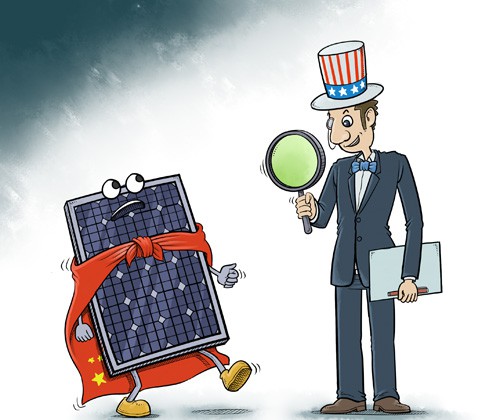|
 |
|
(CFP) |
On March 27, the World Trade Organization (WTO) released a panel report on the case of China's appeal against the U.S. amendment to the Tariff Act of 1930. The panel supported China's claim of being unfairly subjected to "double remedy" taxation and found that the U.S. Department of Commerce had failed to take the necessary actions to avoid the imposition of such taxation in the 25 anti-dumping and countervailing cases it made against China from 2006 to 2012.
The United States has thus been found to be in violation of the WTO rules. Shen Danyang, spokesman of the Ministry of Commerce (MOFCOM), said on the same day that China welcomes such a decision.
He said this case involves more than $7.2 billion each year and touches upon an enormous trade benefit for China. He added that China hopes the United States will respect the WTO's ruling and change its abusive use of trade remedy measures as soon as possible to ensure an environment of fair competition for Chinese enterprises.
The United States, through its amendment to the Tariff Act (also referred to as the GPX Bill) on March 13, 2012, backdated and authorized its investigative institutions to levy countervailing tax on "non-market economy countries" from November 20, 2006, but such actions were not found to be in clear violation of WTO rules. Shen claimed that China is disappointed by this decision.
Shen said that China is assessing the panel report, and will do the follow-up work according to WTO dispute settlement procedures.
At his speech delivered on September 17, 2012 on China's appealing to the WTO concerning the amendment, Shen emphasized that China has repeatedly reiterated on different occasions that it resolutely objects to abuse of trade remedy rules and trade protectionism and will firmly exercise its rights as a WTO member to protect the legitimate interests of its domestic industries. China hoped the United States would be able to rectify its misdeeds through negotiation under the dispute settlement mechanism of the WTO and properly address China's claims.
On April 8, China filed a Notice of Appeal regarding the WTO Panel Report.
According to the appellate procedures of the WTO, panel reports must be adopted by the Dispute Settlement Body within 60 days of their circulation to WTO members, unless a party decides to appeal. If China or the United States appeals the panel report, the settlement body will make a final decision in three or four months.
Zhang Yansheng, Secretary General of the Academic Committee of the National Development and Reform Commission, said the current state of the world's economic recovery is still fragile. Therefore, the actions of obeying WTO rules, opposing trade protectionism and safeguarding a fair trade environment are all more necessary than ever and a common responsibility for large trade nations such as China and the United States. He claimed the United States had abused trade remedy measures, and hoped the U.S. Department of Commerce will correct its wrongdoing in a timely manner, thus fostering a good environment for international trade.
The case
Since 2006, without proper legal foundations, the United States has nonetheless initiated more than 30 anti-subsidy investigations into China. After the U.S. Court of Appeals for the Federal Circuit affirmed that the U.S. Department of Commerce had no right to make an anti-subsidy investigation into non-market economy countries according to the Tariff Act of 1930, the United States rapidly passed an amendment to the act in March 2012, clearly authorizing the department to take anti-subsidy measures against non-market economy countries and allowing it to retrospectively include all anti-subsidy investigations made from November 20, 2006 onward into the scope of its application. Such a practice was challenged and opposed by China at the time.
Shen said at his speech on September 17, 2012 that despite the lack of any domestic legal basis, the United States went ahead and initiated anti-subsidy investigations into China anyway, and then retrospectively confirmed the validity of those investigations through the GPX Bill. Such a practice put Chinese enterprises into an uncertain legal environment, breaching rules in respect of transparency, due process and other aspects under the oversight of the WTO.
| 